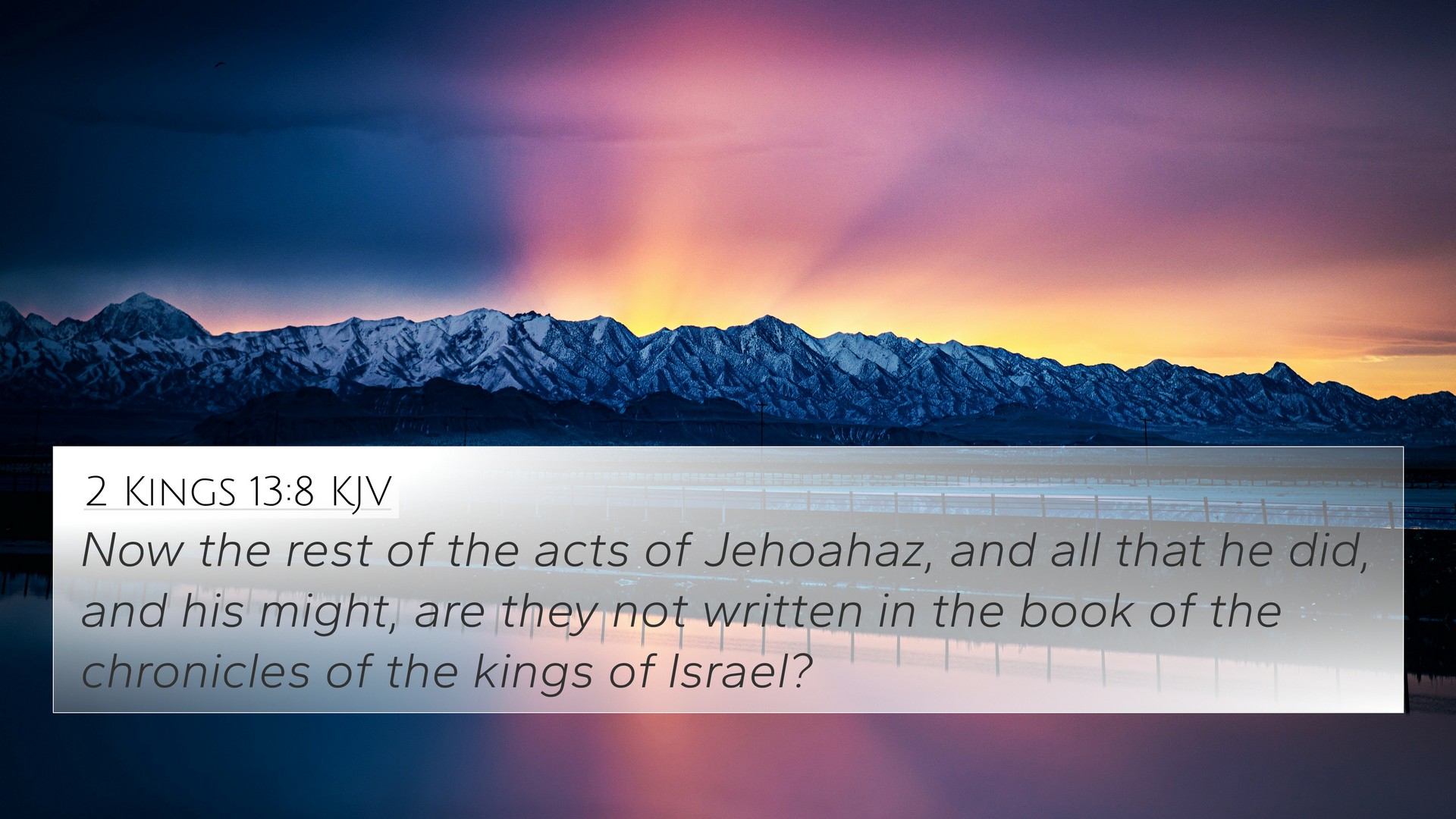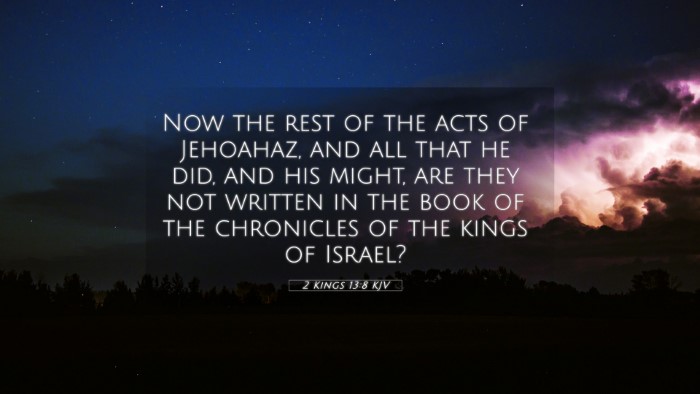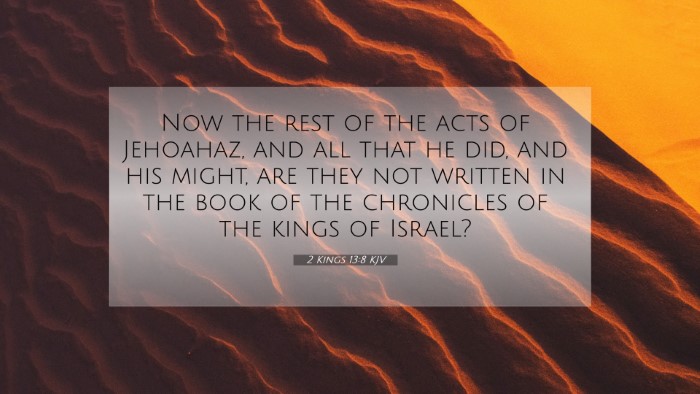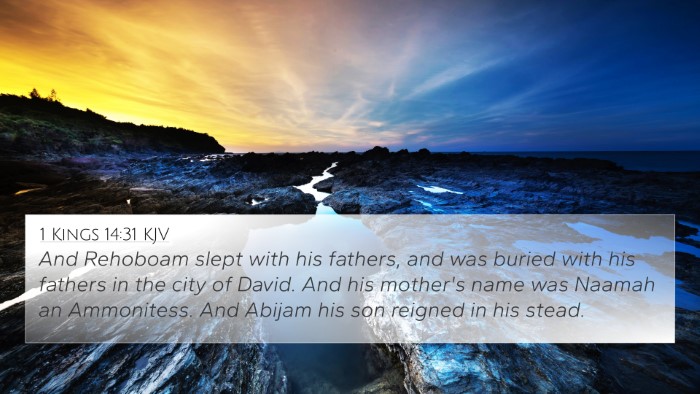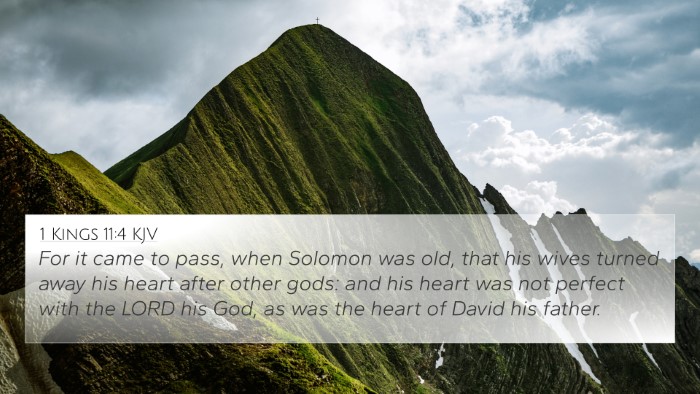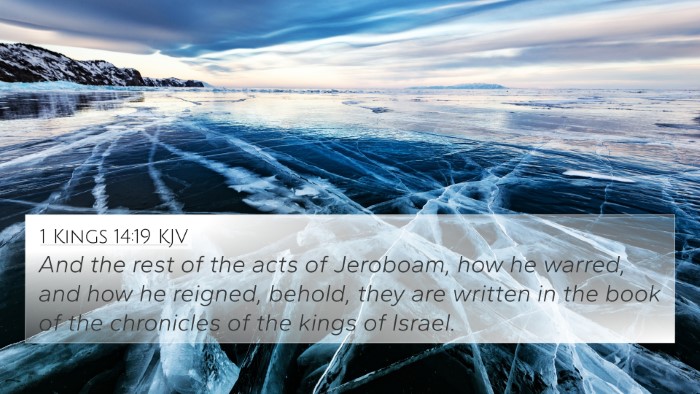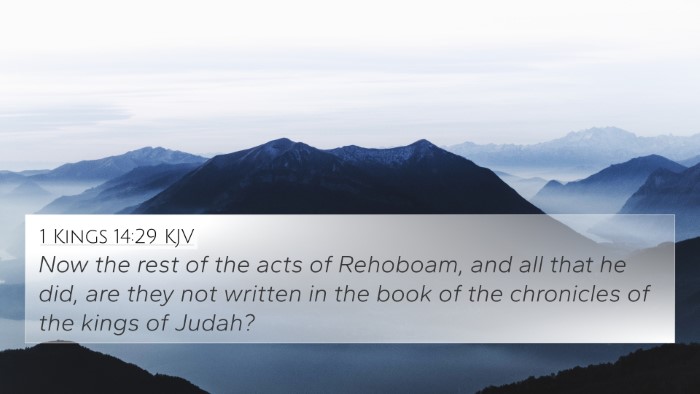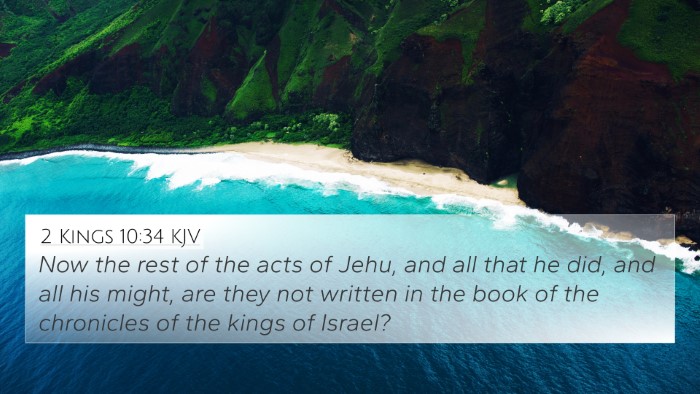Old Testament
Genesis Exodus Leviticus Numbers Deuteronomy Joshua Judges Ruth 1 Samuel 2 Samuel 1 Kings 2 Kings 1 Chronicles 2 Chronicles Ezra Nehemiah Esther Job Psalms Proverbs Ecclesiastes Song of Solomon Isaiah Jeremiah Lamentations Ezekiel Daniel Hosea Joel Amos Obadiah Jonah Micah Nahum Habakkuk Zephaniah Haggai Zechariah MalachiVerse
2 Kings 13:1 2 Kings 13:2 2 Kings 13:3 2 Kings 13:4 2 Kings 13:5 2 Kings 13:6 2 Kings 13:7 2 Kings 13:8 2 Kings 13:9 2 Kings 13:10 2 Kings 13:11 2 Kings 13:12 2 Kings 13:13 2 Kings 13:14 2 Kings 13:15 2 Kings 13:16 2 Kings 13:17 2 Kings 13:18 2 Kings 13:19 2 Kings 13:20 2 Kings 13:21 2 Kings 13:22 2 Kings 13:23 2 Kings 13:24 2 Kings 13:25